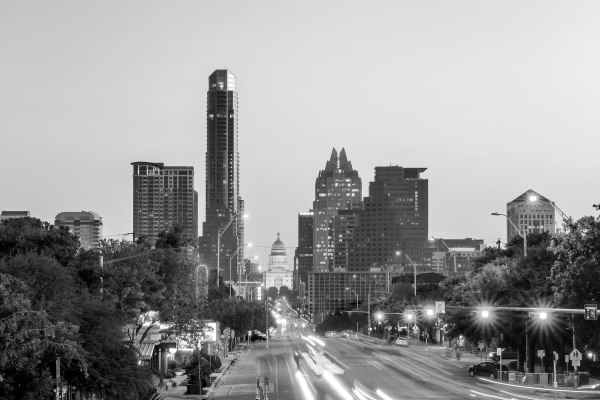Today, Uber and Lyft took their ride-hailing services offline in Austin, Texas, leaving drivers scrambling for other means of making income, and riders stranded or seeking another mode of transportation.
Here’s why: this week, Austin voters upheld a rule that would require Uber, Lyft and other transportation network companies there to do fingerprint-based background checks of their drivers, among other things.
The General Manager for Uber Austin, Chris Nakutis, issued a statement after the vote:
“Disappointment does not begin to describe how we feel about shutting down operations in Austin…We hope the City Council will reconsider their ordinance so we can work together to make the streets of Austin a safer place for everyone.”
The ordinance he’s talking about also requires drivers for Uber, Lyft and others to clearly label their cars with a company logo, and refrain from picking up and dropping off passengers in certain city lanes.
And a spokesperson from Lyft issued a similar statement:
“…The rules passed by City Council don’t allow true ridesharing to operate. Instead, they make it harder for part-time drivers, the heart of Lyft’s peer-to-peer model, to get on the road and harder for passengers to get a ride. Because of this, we have to take a stand…and will pause operations in Austin on Monday, May 9th.”
Both Uber and Lyft lobbied hard in Austin, spending more than $8 million on their efforts. But that didn’t manage to sway voters.
Entrepreneurs who live and work in Austin, Dane Jensen and Noah Lee, the co-founders of subscription commerce startup Sock Club, are concerned that without Uber and Lyft, drunk driving rates will increase in their city.
They are also worried that residents and visitors won’t have an easy way to get around, especially on rainy days when people are reluctant to ride a bike.
Sock Club CTO Jensen said, “I’m not really certain what fingerprinting brings to the table in terms of improving safety for consumers, but I’m happy our community gets a say in how these companies are allowed to operate.”
Lee added, “There was no lack of knowledge about what was happening, but Austin still voted this way. I don’t know where Uber or Lyft should draw the line with local government. But there are definitely not enough cabs or public transit options to handle all of the demand without them.”
Perhaps another ride-hailing company will implement fingerprint-based background checks, and move in on Uber and Lyft’s territory. Traditional taxi companies already conduct fingerprint-based background checks on their drivers.
For its part, Lyft has about 10,000 Austin-based drivers who will be looking for new ways to generate income during this so-called “pause” in operations.
Uber also reports that prior to the shutdown, they had approximately 10,000 drivers using their app in Austin, too. Throughout the U.S. many freelance drivers use Lyft and Uber simultaneously to source fares.
[Note: this post has been updated with information from Uber and Lyft about the number of drivers using their apps in Austin before the shutdown.]
